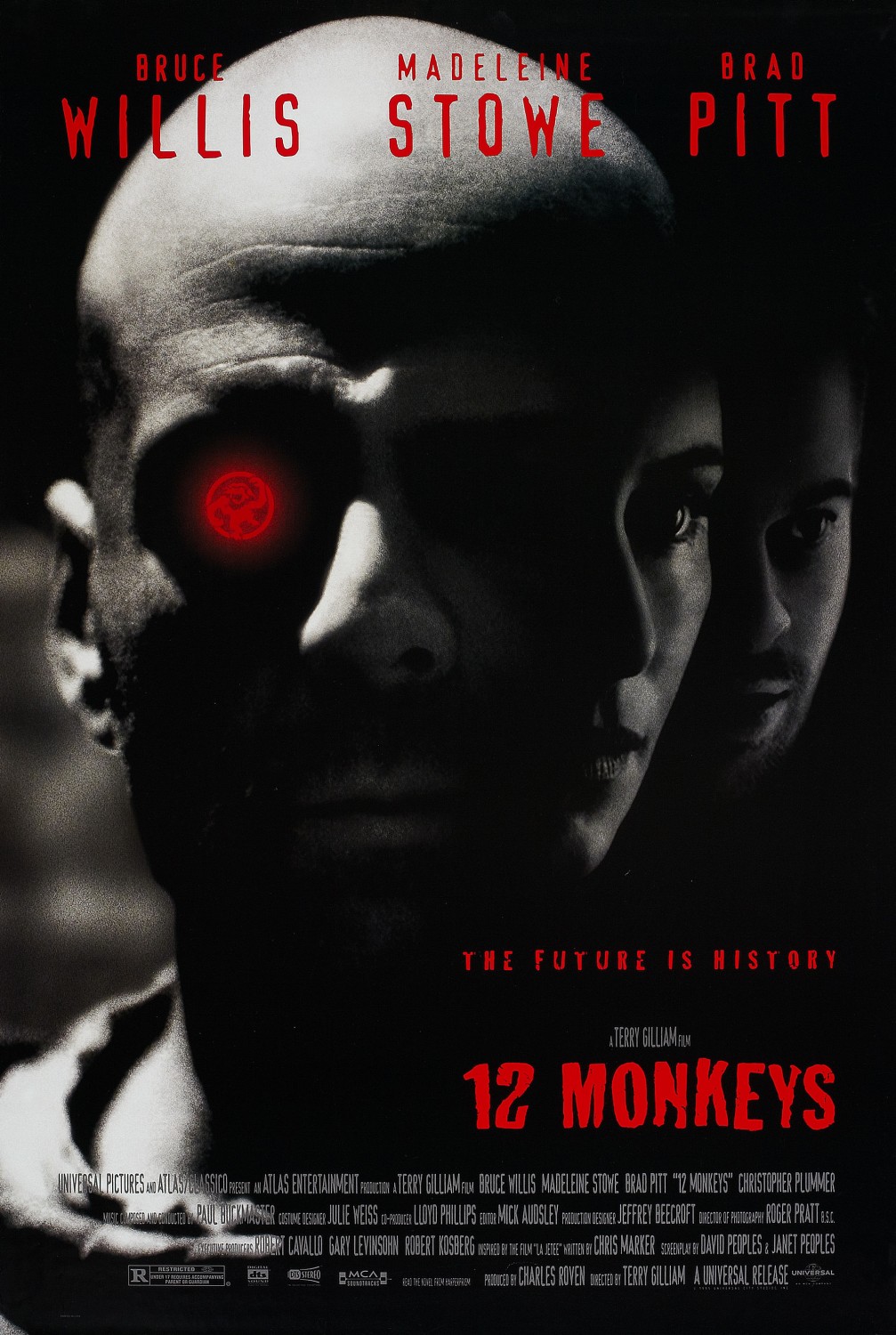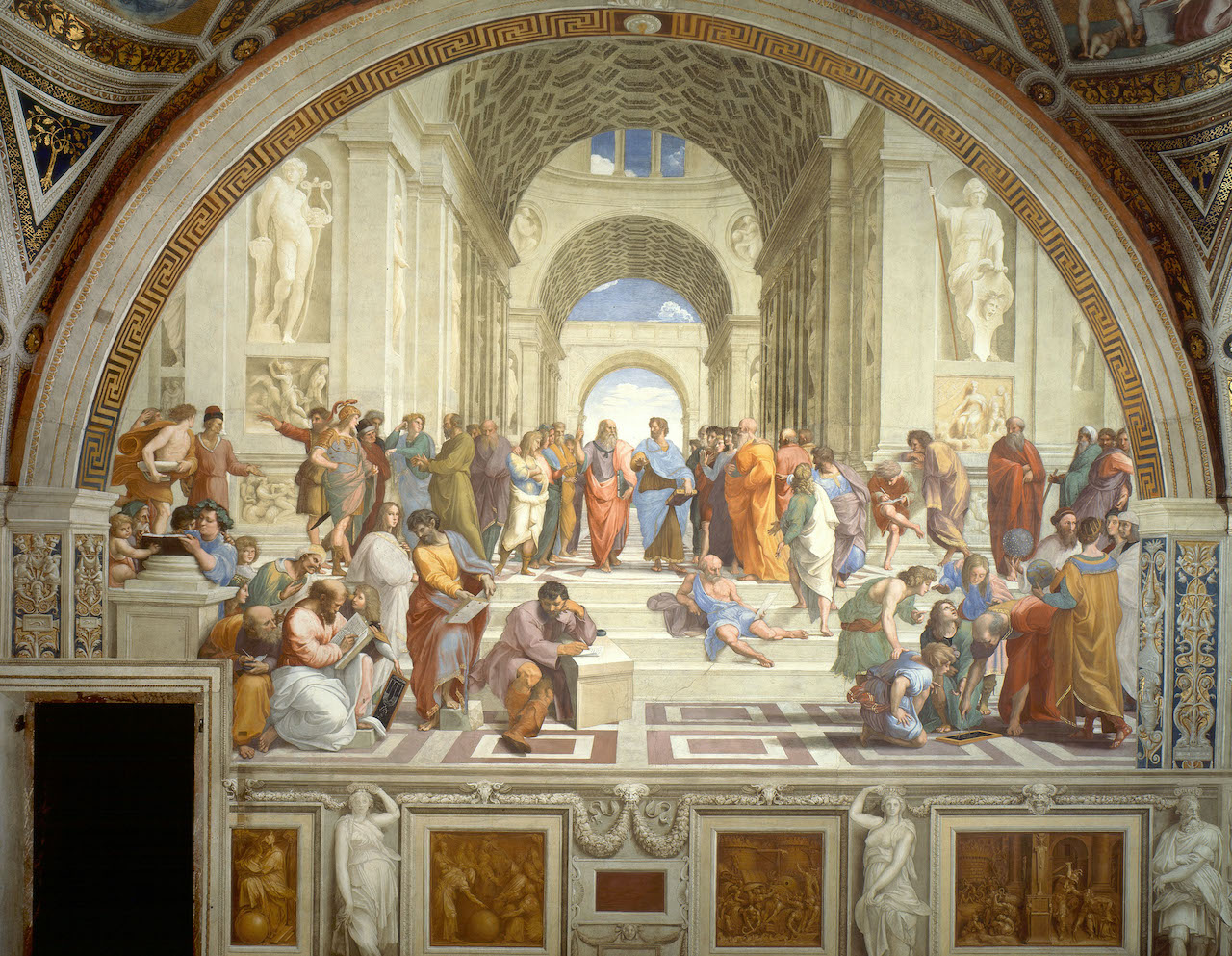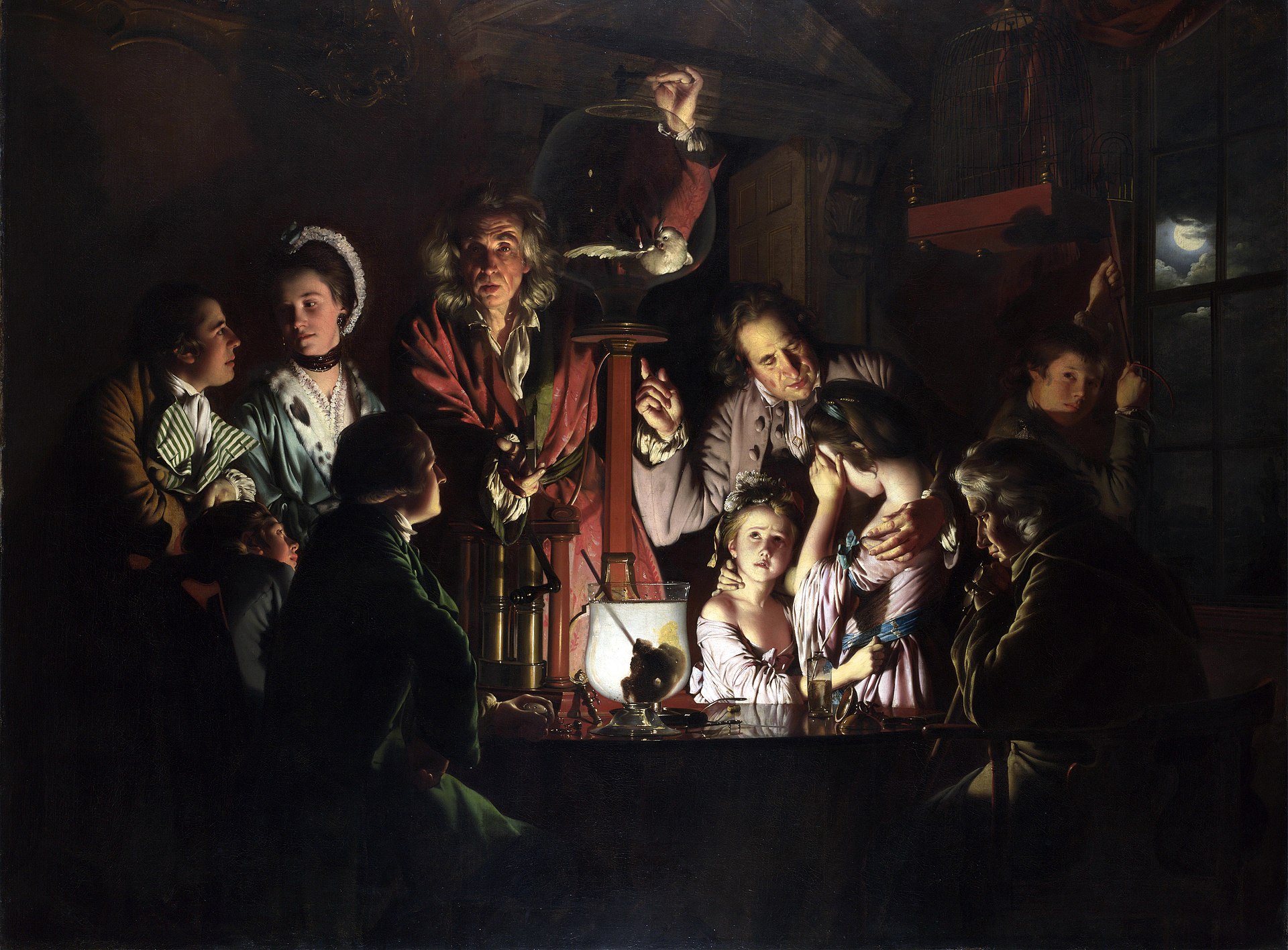
’12 Monkeys’ Movie Review
Mr. Terry Gilliam offers us a haunting yet plausible interpretation of scientific dystopia in his pre-pandemic 12 Monkeys. The society depicted throughout the time escapade cannot but be helped to be compared to his previous Brazil Kafka-esque demeanor. Namely, it is the critical indictment of common people’s blind faith in man-made authorities and the folly of technological admixture within.
With this effort, Mr. Gilliam is portraying for us a real phenomena of cognitive dissonance with the protagonist played by Bruce Willis. He is a man who, unbeknownst to us, is alive in a not-too-distant future where more than 2/3rd of the Earth’s population has been exterminated by a mysterious virus, with the technocratic authorities wasting further flesh through brute force efforts to go back in time to learn, if not prevent, the pandemic from occurring in the first place. Mr. James Cole, played by Mr. Willis, is given a false dichotomy of freedom: volunteer to go back in time (where there is no certainty of even landing in the correct date), or remain imprisoned in a pre-Matrix like sea of cages.
It is inescapable to comment on this motif of dystopia found with Mr. Gilliam’s staunch humanistic commentary on the democratic materialist society and its dogmatic principle of lionizing the majority rule, which is often times mob rule, leading to false ideals and ultimately human catastrophe recorded in permanent memory. Though the film does not pause too intimately on this thesis, it is nevertheless pervasive in the film, most prominently in the tiresome committees which are quintessentially the formations of bygone “organization men”. Mr. Gilliam loathes the organization of human cultivation through chairs of busybodies, of so called “experts” who are simply unchecked in their false pretenses of authority over human knowledge – indeed the film itself testifies to the absurdity of a civilized society which investigates viruses for causing death rather than eradicating malarial protozoans, for instance. One must judge these forms of societies not to be civilized in the paragonal sense – that of the confederated autonomies of the Ancient Greeks, who symbolize extending life unto immortality through exercising scientific knowledge for contemplation rather than for devastation.

‘School of Athens’. Raphael. Apostolic Palace, Vatican City 1509-1511).
In any case, it is laudatory for the filmmaker to appreciate the nuances of human evolutionary psychology and the confusion one has in attempting to order the facts of his reality in the presence of a common tongue which is biologically motivated to deny his beliefs. For, what is conveniently ignored in our ever greater inter-dependencies, is the cosmos which exists outside of human organizing, and that which is continually neglected in Western contemporary human education to savor: eternal movement. Perhaps such proper cultivation of respecting the inconceivability of natural beauty’s formation would lead to more mindfulness and therefore centeredness in the agitated minds of the youth who are so thirsty to throw their lives into causes which, while aim to move man higher, have been leaving him and her more and more in material bondage and oppression as the machinations continue to advance the limits of human possibility inequitably. It is at this tensile intersection which defines scientific dystopia; of science as a veritable art, per Feuerbach, originally motivated by wonder rather than power.

‘An Experiment on a Bird in an Air Pump’ by Joseph Wright of Derby, 1768. National Gallery, London.
Regarding the imagination of the causality of events in the film, I must be brief in celebration, lest the plot is spoiled. It can simply be remarked that anti-causality exists already in digital control systems, where future quantities of movement effect present quantities, forming a continuum of motion. While the film focuses more on the adventure and sheer drama of surviving an inescapable fate, it is optimistic in its rendering of the human psyche as capable of carrying what Aristotle denoted in his Physics as “Place”. Places are moments, that is, that occur irrespective of their sequence in history, but are nonetheless sequenced in the mind to form the personhood or soul of the moving body – ultimately in the trajectory of the eternal beauty of love. To which the question arises: What is our place then, as we are subsumed in the eternity of movement beyond man’s futile efforts at possessing it? How many truly live to resonate with it as opposed to sustaining the faulty phantoms of society?

